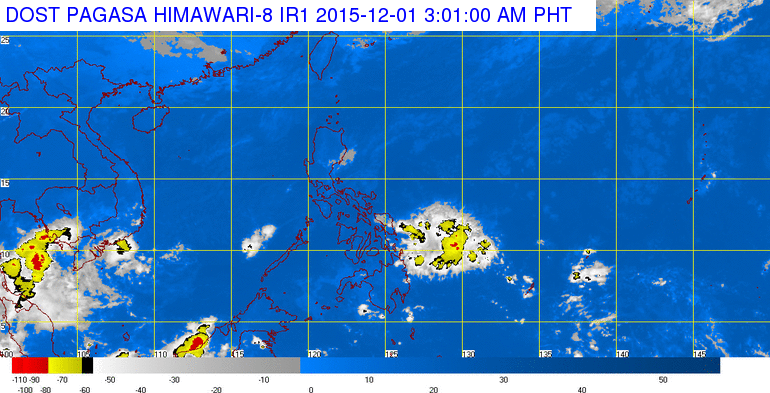Decline of Philippine seas can be reversed via sustainable practices: Greenpeace
Sustainable fishing practices are crucial in reversing the ongoing decline of the Philippine seas, Greenpeace said today during a media briefing in the country’s tuna capital.
“We are running out of fish and running out of time. For a country known for marine biodiversity, there are very few fish left to catch,” said Vince Cinches, Oceans Campaigner for Greenpeace Southeast Asia.
“The government’s recent plans to import fish from other Asian countries like China and Taiwan is a clear sign that our seas have now collapsed, with the local fishing industry, particularly the livelihoods of small scale fishermen, at risk,” he added.
Greenpeace is challenging the Bureau of Fisheries and Aquatic Resources and local fishing communities to look into sustainable fishing methods to prevent what could be an imminent fish shortage.
Fish accounts for most of Filipinos’ daily intake of protein, with the average person eating 28 kilos of fish every year. If current destructive fishing practices continue, fish will soon become more expensive, and may even become a luxury. Common species like round scad, or galunggong, has dwindled to the point that it can no longer meet local market demand. Importation will only serve the immediate needs of the population, but will not address the problem of why the sea is no longer self-sufficient.
Greenpeace is offering an alternative and sustainable solution to the country’s fishing woes through Skipjack Pole & Line (P&L) Fishing. Together the Bureau of Fisheries and Aquatic Resources (BFAR) and Socksargen Federation of Fishing and Allied Industries Inc. (SFFAI Inc.) the group has organized a 1-day forum at Sidney Hotel tomorrow to discuss the benefits of skipjack pole and line fisheries. Two fishing experts, Bill Holden from the Marine Stewardship Council of the Australia, and Ibrahim Athif Shakoor, Secretary General of the Pole and Line Federation, of the Maldives, were brought in by the group to share their insights on the safe practice and market viability of P&L.
Modern fishing techniques have resulted in unwanted and unsustainable by-catch and over fishing that has wiped out some tuna populations. Pole and line is a traditional method practiced by fishers in coastal communities. It requires the use of a pole, a line, a hook, and a bait boat. A few countries in the South Pacific practice P&L. Both Holden and Shakoor believe that P&L is the best option to revive the seas. They maintain that a well-managed and sustainable fishing is essential for healthy oceans, livelihoods, and economies worldwide.
“There is huge potential for P&L in the Philippines. Not only is it safe for the environment, but it also economically advantageous to fishermen who will continue to engage in it, as we have seen in the fishing economy of the Maldives,” says Shakoor.
Holden adds: “as an archipelago, the Philippines should tap into the vast resources of its seas without harming the ocean’s ecosystems. In order to do that, the fishing industry must practice safe and sustainable methods. A good first step would be to be an MSC certified P&L fishery.”
Greenpeace is calling for a full cooperation between government and fishing industries and communities to work together to develop sustainable and responsible fisheries in order to revive the Philippine seas.
“More than 70% of the world’s fisheries are fully exploited, over-exploited or significantly depleted, and the Philippine situation is a stark reflection of this sad reality. But there is hope: sustainable practices, such as P&L, should be embraced by all stakeholders. This way, our seas can continue to provide food and livelihoods for the millions of Filipinos in the years to come,” said Cinches.
Greenpeace is an independent global campaigning organization that acts to change attitudes and behavior, to protect and conserve the environment, and to promote peace.
#############################
For more information:
Vince Cinches
Oceans Campaigner
Greenpeace Southeast Asia
+63 917 5363754
Therese Salvador
Media Campaigner
Greenpeace Southeast Asia
+63 908 660 3444
website: http://www.greenpeace.org/seasia/ph/









Post a Comment